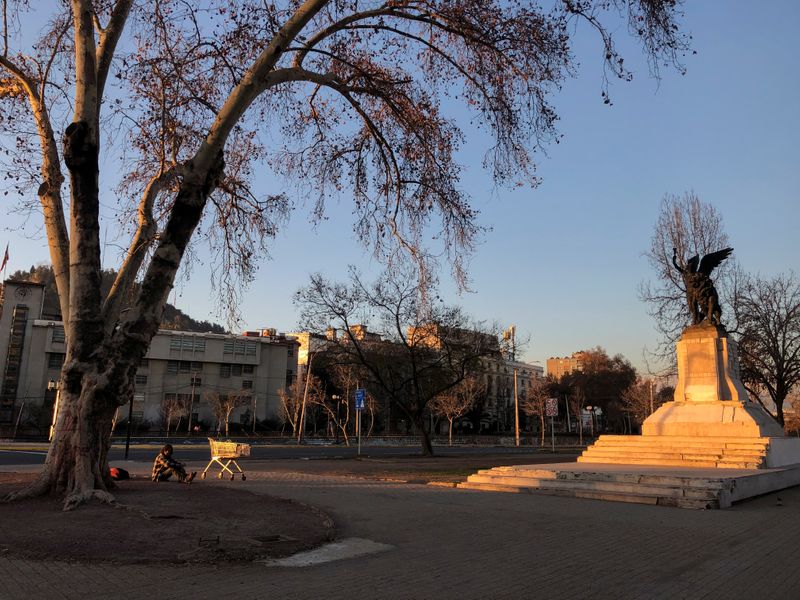SANTIAGO (Reuters) – Chile’s central bank on Wednesday softened its prediction for an economic contraction in 2020 due to the impact of the coronavirus on the world’s top copper producer to between -4.5% and -5.5% from the 5.5% and 7.5% contraction it foresaw in June.
The bank said a “sharp fall” in the economy that coincided with the arrival of the virus in the second quarter had been followed by “signs of stabilization” as some sectors rallied gradually and others declined by a lesser amount than previously.
In its quarterly economic report, known as IPOM, the bank added that the gradual easing of lockdowns and “support for household income” had helped bolster the flailing economy.
The Chilean government has announced relief measures, including one-off cash handouts, loans and mortgage deferrals for hard-hit citizens. And a law to allow eligible individuals to withdraw 10% of their pensions early also brought an injection of liquidity. So far, $12.606 billion has been withdrawn by almost half the population.
The all-important mining industry has largely maintained production throughout the pandemic, albeit with a drop-off in June and July when contagions were at their peak.
The bank said it was basing its projections on a “significant recovery” in the second half of the year, continued progress in Chile’s fight against the novel coronavirus, and “sound institutional handling” of the social issues that spurred widespread, long-running protests over inequality that began last October.
The bank projected a copper price of $2.70 per pound for 2020, compared with the $2.50 predicted in June, a reflection of the rallying of China’s appetite for the red metal post-pandemic.
The bank had in June predicted the economy would contract between in 2020.
But economic activity has begun to pick up, falling 12.4% in June and 10.7% in July compared with 15.3% in May and 14.1% in April.
The bank said it expected growth of between 4% and 5% in 2021 – lower than the 4.75% and 6.25% it predicted in June – and between 3% and 4% in 2022. It predicted inflation would hit 2.4% in 2020, climbing to 3% in 2022.
(Reporting by Fabian Cambero and Aislinn Laing; writing by Aislinn Laing; editing by Kevin Liffey and Jonathan Oatis)


















